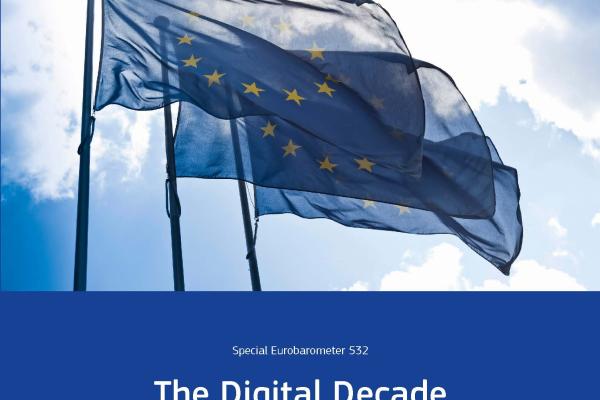The findings and publications linked here do not necessarily represent the views of the European Commission, unless specifically stated.
Filter by
Experts' Corner (54)
RSSThe Future of Jobs Report 2023 explores how jobs and skills will evolve over the next five years. This fourth edition of the series continues the analysis of employer expectations to provide new insights on how socio-economic and technology trends.
The European Commission organised its first thematic seminar as part of a series of events to provide Pact for Skills members with the opportunity to engage in a broader discussion on a topics of high relevance for them.

As economies begin to recover from the COVID-19 pandemic, labour shortages are becoming increasingly evident despite the impact of the war in Ukraine on energy and commodity prices. These include shortages exacerbated by the crisis in sectors and professions where they had been endemic for some time
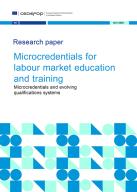
This study examines the emerging relationship between microcredentials and qualification systems.
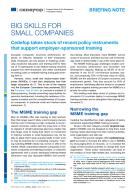
This briefing note takes stock of policies and instruments EU countries deploy to encourage MSME training provision and to strengthen their training performance.
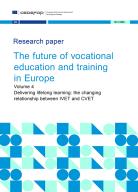
This study compares the way the initial vocational education and training (IVET) and continuing vocational education and training (CVET) sub-systems interact to support the learning of adults, and thus facilitate lifelong and life-wide learning.
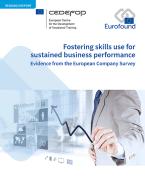
Human resources contribute to the success of an organisation though their skills. According to the ability, motivation, opportunity (AMO) model, employee contributions to organisational performance depend on their skills, their motivation to draw on their skills, and the opportunities to do so.
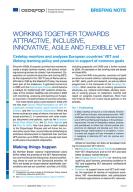
In the framework of European countries’ cooperation on VET and lifelong learning, Cedefop monitors, analyses and reports on countries’ priorities and activities.

The future of work in the Western Balkans: New forms of employment and platform work
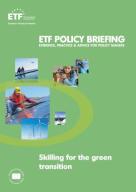
This paper covers the main dimensions to consider as the subject is approached for either research or policy guidance purposes.



